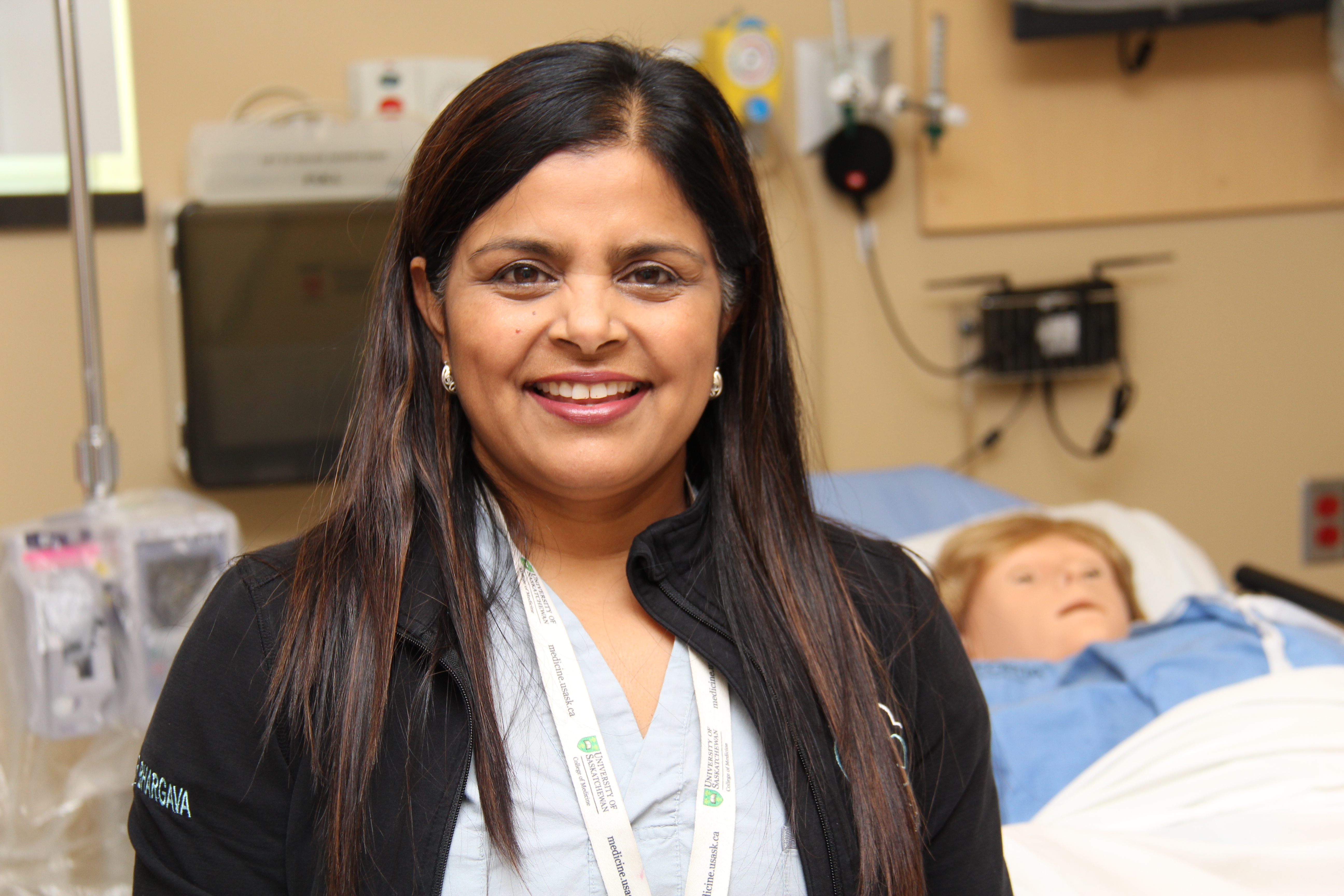
Pursuing a passion for medicine and education
Becoming a doctor was a career path that Dr. Rashmi Bhargava’s (MD’91) father suggested.
By Kristen McEwenWhile Bhargava always enjoyed working in obstetrics and gynecology, at one point she found herself thinking of her childhood dream — becoming a teacher.
“I always wanted to be a teacher and now I’ve become a doctor and a teacher,” Bhargava said. “It worked out so well.”
Bhargava is currently a clinical assistant professor in the College of Medicine (CoM), the Year 2 clinical skills site lead and the Year 3 clerkship coordinator at the Regina campus. She enjoys sharing her passion working as an OB/GYN with students – and it shows.
Students in the 2019 Regina cohort voted to present Bhargava with the Physician Teaching Award. The award is presented to a physician preceptor who has made considerable efforts to provide an excellent learning experience to undergraduate medical students.
She was also recently named a recipient of the 2019 Certificate of Merit Award from the Canadian Association of Medical Education (CAME). The award recognizes, promotes and rewards faculty committed to medical education in Canadian medical schools.
Bhargava gets to experience the best of both worlds when it comes to medicine and education.
“The hardest part has been trying to find the perfect work-life balance,” Bhargava said. “When I go home, I still need to work on office labs and documents and teaching commitments and obligations, but I do have to find time for my husband and children.”
When Bhargava started her own obstetrics clinic in Regina 22 years ago, she was also starting her own family by expecting her first baby. During the next eight years, she had three more children while working full- time at her private clinic.
With three of her children now in university, and her youngest entering into Grade 9 and involved in extracurricular activities, Bhargava’s family stays busy.
In her role as a site lead and clerkship coordinator, Bhargava oversees students as they take objective structured clinical examinations (OSCE) in the Dilawri Simulation Centre, or sim centre, located at the Regina General Hospital (RGH).
In Year 2, 40 medical students are selected to learn at the RGH Health Sciences Learning Centre where they continue their studies throughout years 3 and 4.
As a Year 3 clerkship coordinator, Bhargava works with four to five students during a six-week course, where students learn a range of skills from performing a pelvic exam to delivering a baby.
The sim centre features mannequins used to simulate medical scenarios, similar to what would be happening on the delivery ward or Emergency Room.
The technology within the centre means students can learn without fear of harming a patient.
This is an advantage that not all medical students have had, Bhargava noted, referring to her own medical education experience in which students gained delivery and labour experience being on the delivery ward.
“Medical education is not just didactic teaching in a classroom anymore,” she said. “When students get to do things with their hands, they remember it more than if they read it in a book.
“That’s the beauty of simulation – it brings lessons learnt from textbooks to real life scenarios.”
